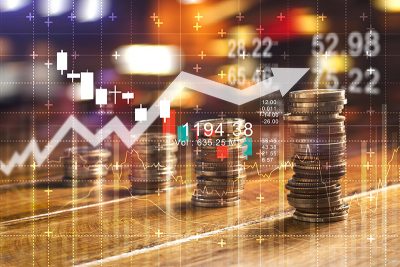
According to a new poll conducted by Reuters, market analysts expect the pound sterling to rally once the outcome of Brexit is made final. This would end a long history of political discussion, which goes back to June 2016, when Britain voted “to leave” the European Union after 43 years of membership. On the voting day, the British pound hit an intraday high of $1.5022 after two top campaigners in the “leave” camp predicted a win for the “remain” side. With the final results at 51.8 percent in favor of the “leave” side, the pound slammed to a low of $1.3225. Within 24 hours, the pound sterling shed 10 percent of its value against the dollar.
The referendum was the first step of Brexit, so Britain is still part of the current European Union. Other political processes that could see Britain separate itself from the EU are still in progress. However, the most recent political statements associated with Brexit are influencing pound prices more than the underlying economic data. Overall, Brexit-related events have had significant effects on the price of cable.
Theresa May and Article 50
David Cameroon, then prime minister of the UK, announced resignations after the Brexit vote defeat. A political contest ensues over his replacements resulting in high volatility in the cable. On July 13, 2016, Theresa May became the prime minister of the UK.
In October, May’s announces that the UK would activate its exit from EU in March of 2017. The market reacts with the pounds falling to below $1.23 level, its lowest price in 30 years. As of January 2017, the pound was still trading below $1.20 as Brexit uncertainties continued.
Snap Elections and Interest Rate Hikes
To consolidate her political strength, May announced snap elections in April 2017. That call surprised the market, and the pound rallied to 1.27 level against the dollar. The market interpretation was that a stronger conservative party would ensure smooth Brexit negotiations. Election results did not favor May; her party ended up weaker. The cable fell back to $1.26 levels as a result of political uncertainties.
A weak pound meant a rise in the cost of living in Britain. Inflation levels hit 3% in September. In response, the BoE raised interest rates on November 2, 2017. Markets had anticipated the rates hike; the pound rose to $1.32. However, the prices would drop to $1.30 level as traders’ concerns were more on the dull economic conditions.
Brexit Deal Announcements and Currency Rallies
On December 8, 2017, markets got information that a deal on phase one of Brexit talks is in place. The UK and EU were making good progress on Brexit deal negotiations. The pound rallied to levels above $1.35. In March 2018, a 21-month transition deal on Brexit was made public. The pound reacts positively recovering lost ground to trade above $1.40 level.
No-Deal Brexit Fears Hits the Pound
As of November 2018, fears of a no-deal Brexit reflects in the depreciating pound. On August 8, the pound fell below $1.29 after the Governor of BoE and the International Trade Secretary made comments suggesting uncertainties on the Brexit negotiations. Between June and July 2019, the pound was under pressure, opening at $1.26 and closing at $ 1.22. The decline is associated with Theresa May’s resignation. May resigned after her attempts to have a deal Brexit failed.
Conclusion
The Brexit vote of June 2016 resulted in a sharp decline to the pound value. Since then, Brexit politics are influencing the cable prices more than any other factor. Currently, the debate is whether there will be a deal or no-deal Brexit. Markets seem to favor a deal Brexit with rallies every time there is optimism, however, tumultuous political sentiments are inclined towards a no-deal Brexit and have led to the recent declines in pound sterling prices.










